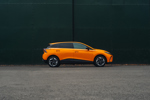AM's regular columnist Professor Jim Saker, emeritus professor of Loughborough University's business school and president of the Institute of the Motor Industry, is observing action elsewhere to help domestic car markets, but wonders what the UK is waiting for.
I was kind of hoping that I wouldn’t feel the need to write another article about Chinese connected EV’s. Then suddenly, the EU seemed to wake up to the threat on Sept 13th with Ursula von der Leyen the EU Commission President announcing an investigation into Chinese electric vehicles on the basis that they would distort the EU car market.
Basically, she was pointing out that the Chinese car manufacturers were subsidising their car companies with the aim of getting a stronger foot hold in Europe.
This got an immediate response from China stating that this was “a naked protectionist act that will seriously disrupt and distort the global automotive industry and supply chain . . . and will have a negative impact on China-EU economic and trade relations”. By comparison Italy’s transport minister is quoted in the FT as saying, “Europe is waking up only now: were they distracted, incompetent or complicit?”
The good thing from my perspective is that the EU has at least acknowledged the threat and is attempting to do something despite the sabre rattling from the Chinese Government.
The problem is that the UK Government is staying remarkably silent on the matter caught out by the stupidity of imposing a 2030 deadline without working out the commercial implications and by a right desire to address climate change. The problem is that it becomes a balancing act, with China controlling 95% of battery and raw material supply there is a dependency that could easily lead to domination.
It is difficult to understand why the UK Government seems to be doing nothing to protect the car industry from the import of cheap Chinese cars. It has been pointed out that firstly there are major security issues with the connected vehicles. Secondly that the Government’s own targets for 2024 are penalising the companies that have invested in manufacturing plants in the UK over a number of years. Thirdly that many of the legacy brands may due to Brexit tariffs decide to abandon the UK and consolidate in Europe.
Jo Biden is attempting to push back against Chinese subsidies but giving subsidies to indigenous US manufacturers who sell EV’s. Would this not make sense in the UK?
Some people have played down the threat by comparing it to the 1990’s with Japanese cars coming into the UK. This is a flawed analysis. Initially they came in after the Government changed its legislation and allowed cars to be bought on finance – up until then they could only be bought for cash. This was followed by Toyota, Honda & Nissan coming in as manufacturers on Thatcher’s assertion that we were the gateway to Europe. In the case of Toyota and Nissan their tenure has been for over thirty years.
The difference between Japan and China is that along with Russia and Iran, China has been identified as a threat to national security by the Parliamentary Intelligence and Security Committee. For the context of this article neither Russia nor Iran are unlikely to be distorting the UK car market in the next couple of years!



















Login to comment
Comments
No comments have been made yet.